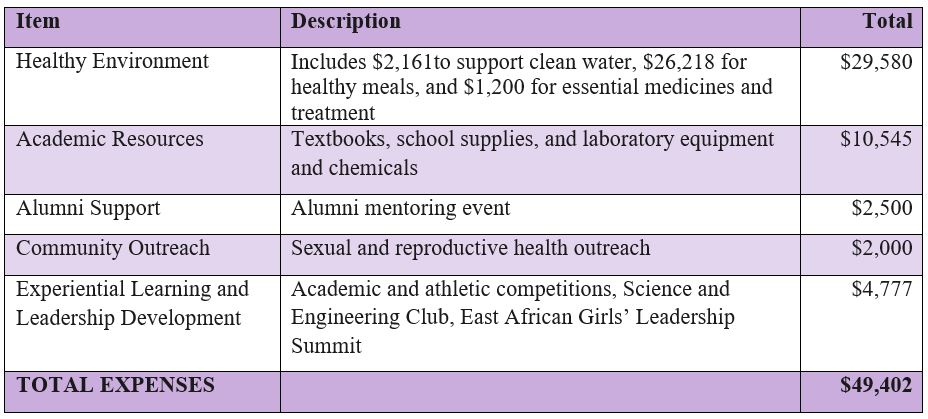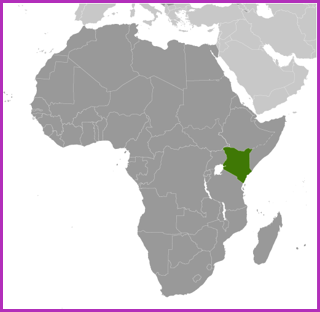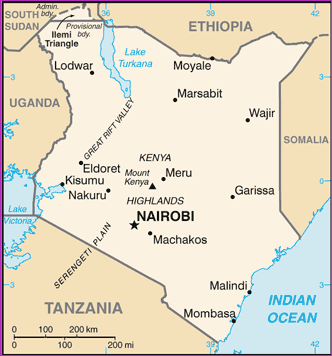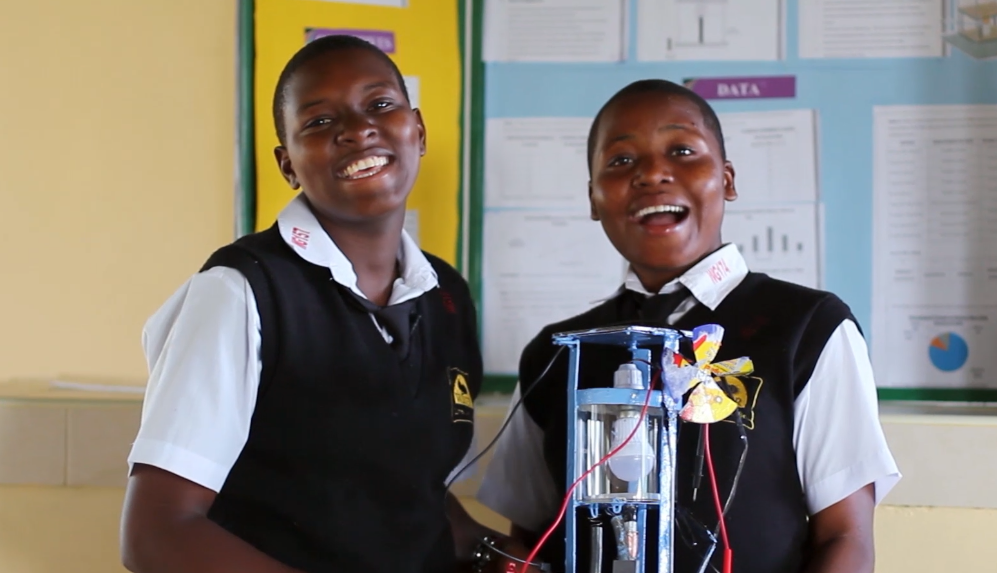
Mission
WISER works with girls to transcend poverty, HIV/AIDS, and gender-based violence by creating environments that empower young women to drive change in their communities.
Life Challenges of the Women Served
Girls in rural Kenya are systematically devalued and face many barriers that threaten their education, health, and independence. In Muhuru Bay, Migori County, where WISER works, girls face limited economic mobility, alarmingly high rates of HIV, and local schools that perpetuate gender-based violence while remaining cost-prohibitive for many. The barriers facing girls are so severe that before WISER, only one girl in 30 years in a community of over 30,000 people had ever finished secondary school and gone to college. Currently only 7 percent of girls complete secondary school due to poverty, child marriage, child pregnancy, orphanhood from AIDS, or gender-based violence.
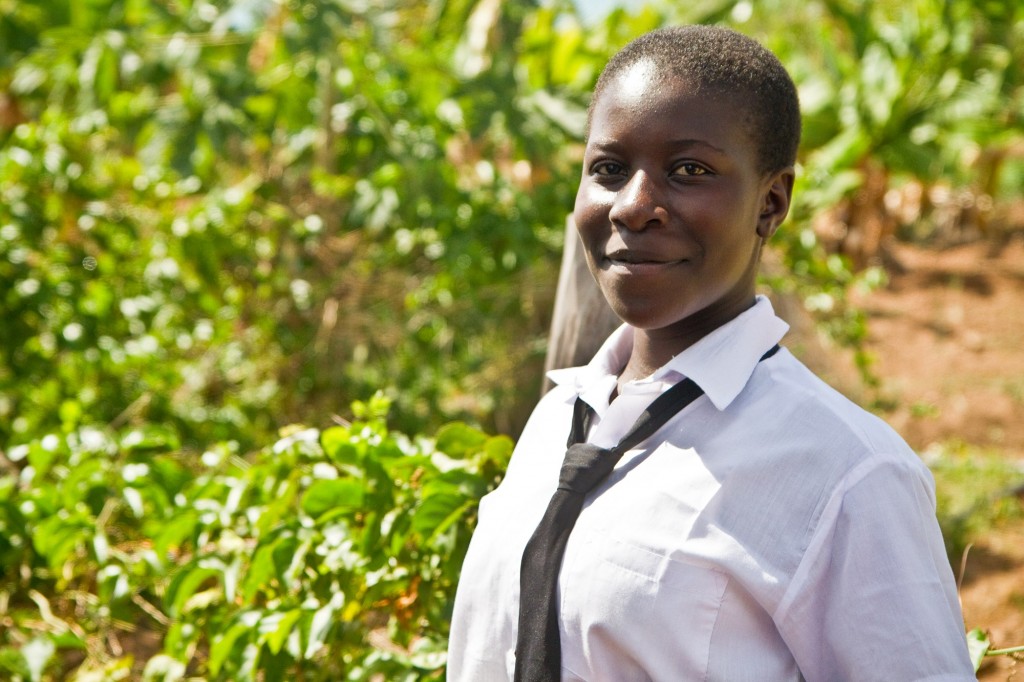 In the first class that applied to WISER, five girls were pregnant, most by their primary-school teachers, and to this day, early pregnancy remains the top cause of dropout for girls in the region.
In the first class that applied to WISER, five girls were pregnant, most by their primary-school teachers, and to this day, early pregnancy remains the top cause of dropout for girls in the region.
Parents often believe their daughters’ dowry to be worth more than her education. An estimated 57 percent of girls in Migori County are married before age 18. Those girls who do attend secondary school face a host of challenges: violent or coercive sexual advances from teachers, a lack of school materials due to limited money from her family, and frequently missed classes due to a lack of menstrual pads. In some cases, girls will participate in transactional sex with teachers or the local fisherman to get money for school fees. Studies have indicated that 50 percent of sexually active girls ages 10 – 16 in Muhura Bay resorted to paid sex to obtain resources essential to education. In a community with an estimated HIV prevalence of nearly 30 percent, girls are putting their lives at risk just to stay in school.
Girls in Muhuru Bay have poorer health outcomes, lack schooling, and are disempowered due to the combination of entrenched barriers they face from an early stage of life. Longstanding community perceptions include expectations that girls will fail in school and never be economically independent. Despite the obvious community and structural challenges present, the girls themselves are blamed for their lack of academic success. The prevailing opinion among many in Muhuru Bay is that “girls are not serious” about education, and thus are at fault for the “mistakes” that prevent their success.
The Project
This project’s main goal is to increase the sexual, economic, and interpersonal agency of girls in rural Kenya. Addressing systemic barriers for girls through this project means changing economic, educational, and health outcomes for generations. The girls served come from some of the poorest families in Kenya and from a region with low educational outcomes and high HIV risk for girls.
With funding from the DFW grant, WISER will:
- create a healthy and empowering environment for 60 new first year students who will live and learn at the WISER Girls Secondary School. They will be taught a STEM-focused curriculum with access to a computer lab, robotics and engineering clubs, and two university-quality science labs for hands-on learning,
- support the growth of all 180 girls at WISER through academic resources, experiential learning, and leadership development,
- support the continued success of 145 WISER alumni through mentoring and leadership opportunities, and
- empower 650 younger community girls through sexual and reproductive health education.
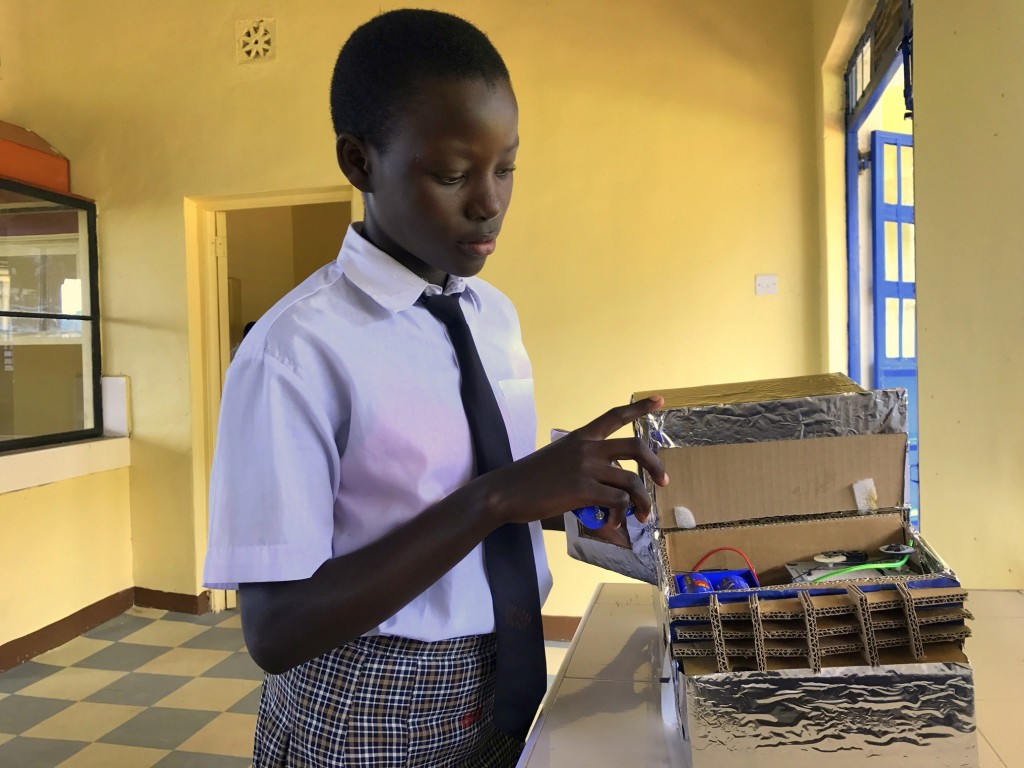 Throughout their first year at WISER, all 60 girls in the expansion class will be provided with clean water from an on-campus filtration system, healthy meals with ingredients from an on-campus garden, and all necessary medicines and treatment. These essential resources remove fundamental barriers standing between the girls and their health, education, and interpersonal agency and allow them to focus on learning and growing in a new and empowering environment.
Throughout their first year at WISER, all 60 girls in the expansion class will be provided with clean water from an on-campus filtration system, healthy meals with ingredients from an on-campus garden, and all necessary medicines and treatment. These essential resources remove fundamental barriers standing between the girls and their health, education, and interpersonal agency and allow them to focus on learning and growing in a new and empowering environment.
WISER’s expanded student body of 180 girls will receive textbooks, school supplies, and new equipment for university-quality science labs. These resources ensure that all of WISER’s students will be well equipped to find academic success in class, independent study halls, and in weekly hands-on laboratory experiments. WISER girls will build on this classroom knowledge with a variety of experiential learning opportunities, where they will grow their confidence in their abilities. Through regional academic and athletic competitions against other schools, WISER girls will demonstrate that girls can compete (and win) against boys, challenging gender norms and building their self-esteem in the process. Through the Science and Engineering Club, girls will design solutions to community-identified problems and elevate their personal sense of self and social valuation through sharing these solutions with community members. 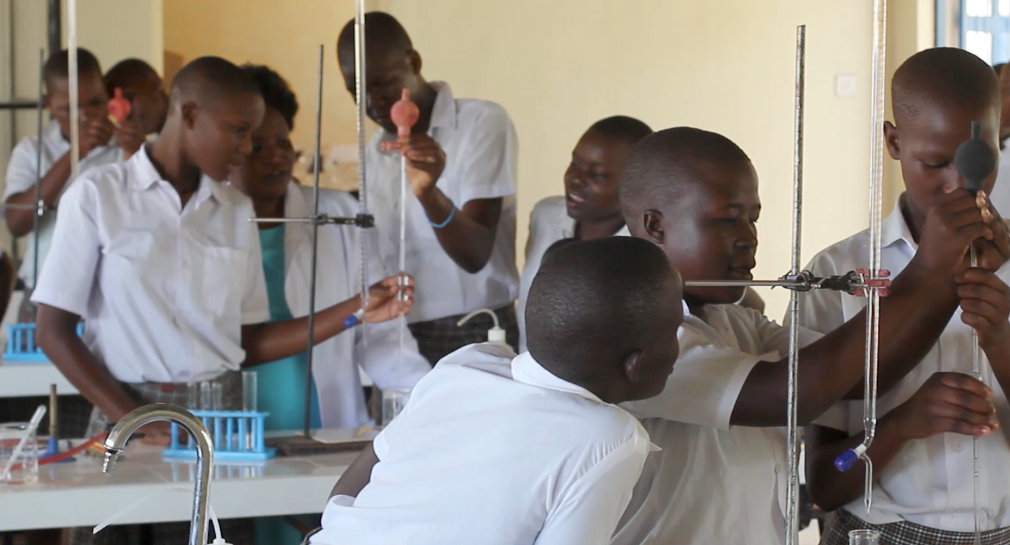 Girls will take these projects to regional and then national Science Fairs, subverting expectations for girls in STEM. Through the East African Girls Leadership Summit (EAGLS), three WISER girls and three faculty mentors will receive creative leadership and gender advocacy training. WISER’s peer counselors will be trained as EAGLS facilitators and will lead interactive sessions throughout the year for all WISER students during weekly psychosocial support group meetings. By engaging with the EAGLS curriculum in WISER’s already empowering environment, WISER girls are likely to see increased levels of self-esteem and will be granted opportunities to lead projects and discussions on campus as a way to build agency.
Girls will take these projects to regional and then national Science Fairs, subverting expectations for girls in STEM. Through the East African Girls Leadership Summit (EAGLS), three WISER girls and three faculty mentors will receive creative leadership and gender advocacy training. WISER’s peer counselors will be trained as EAGLS facilitators and will lead interactive sessions throughout the year for all WISER students during weekly psychosocial support group meetings. By engaging with the EAGLS curriculum in WISER’s already empowering environment, WISER girls are likely to see increased levels of self-esteem and will be granted opportunities to lead projects and discussions on campus as a way to build agency.
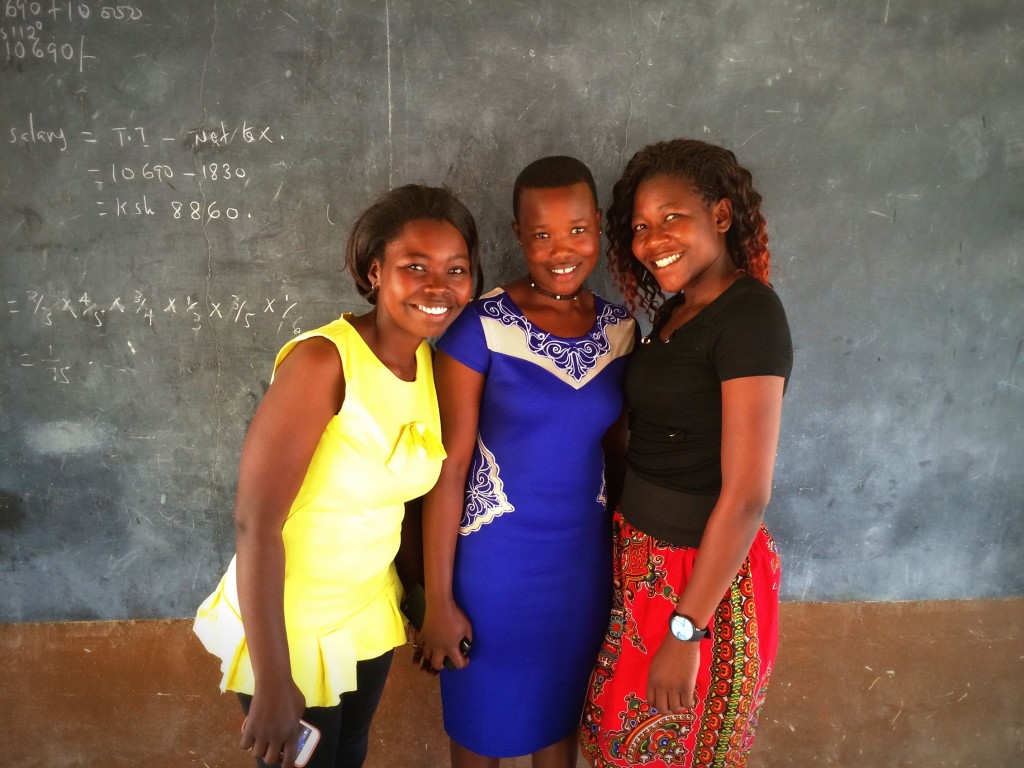 For the first time since WISER’s inception, WISER’s Principal will invite all 145 alumni back to campus in Muhuru Bay for a series of panels, workshops, and storytelling sessions with current students. This is an opportunity for current students to learn from alumni, for alumni to practice their leadership skills, and for alumni to reconnect with their faculty mentors. It is also an opportunity for current WISER students to receive additional psychosocial support from former peers and to learn about future academic and career options. Older alumni will lead sessions for younger alumni and current WISER students on how to succeed in college, how to adapt to living in other parts of Kenya, and how to find internships that can lead to jobs. This opportunity will create support networks for graduates and ensure they have the tools they need to continue to succeed after graduation.
For the first time since WISER’s inception, WISER’s Principal will invite all 145 alumni back to campus in Muhuru Bay for a series of panels, workshops, and storytelling sessions with current students. This is an opportunity for current students to learn from alumni, for alumni to practice their leadership skills, and for alumni to reconnect with their faculty mentors. It is also an opportunity for current WISER students to receive additional psychosocial support from former peers and to learn about future academic and career options. Older alumni will lead sessions for younger alumni and current WISER students on how to succeed in college, how to adapt to living in other parts of Kenya, and how to find internships that can lead to jobs. This opportunity will create support networks for graduates and ensure they have the tools they need to continue to succeed after graduation.
Students will participate in a multi-week training to act as sexual and reproductive health (SRH) advocates in the community. After the completion of the training, all 30 of these students will serve as peer educators, leading sessions in local primary schools and churches for 250 girls and 100 boys. An additional 150 girls will be reached through informal outreach when WISER girls lead sessions in churches and homes during academic term breaks. In addition, WISER will work with Huru International to train alumni as SRH facilitators who will then train an additional 250 young women in Muhuru Bay. Facilitator training takes place over 3 weeks and the delivery of the content takes place over the 6 weeks that follow.
WISER incorporates multiple strategies to serve the diverse needs of its target population, believing that a combination of approaches is essential to develop a whole, happy, healthy girl. As a result, WISER does not focus exclusively on education access, for example, while ignore health needs or past trauma. Instead, best practices identified for educational access, high academic outcomes, empowerment and leadership, HIV interventions, and sexual and reproductive health are combined. These methods reinforce each other, and the result is a holistic approach to girls’ empowerment and education with unprecedented outcomes.
When girls join WISER, they are almost certain to complete secondary school, and 90 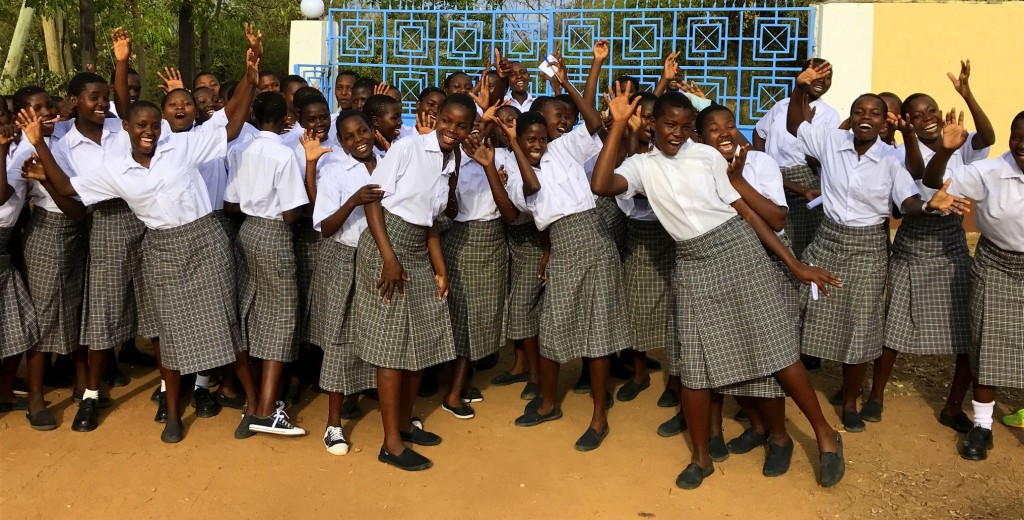 percent of the alumni enroll in college. In addition to the short-term outcomes achievable within the one-year project timeline, this project will produce long-term outcomes that address the cyclical burden of poverty, disease, and gender-based violence girls face in Muhuru Bay. WISER girls become beacons of success in their community and show other girls that they, too, can be self-confident and have autonomy in their lives.
percent of the alumni enroll in college. In addition to the short-term outcomes achievable within the one-year project timeline, this project will produce long-term outcomes that address the cyclical burden of poverty, disease, and gender-based violence girls face in Muhuru Bay. WISER girls become beacons of success in their community and show other girls that they, too, can be self-confident and have autonomy in their lives.
Direct Impact: 975 girls in rural Kenya. Indirect impact: 16,000 women and girls in the area.
UN Sustainable Development Goals
![]()
![]()
![]()
![]()
![]()
![]()
![]()
Questions for Discussion
- How important is WISER’s holistic approach to the success of this project?
- What impact does community buy-in have on girls’ education?
- How do you think this program will impact the region in the years to come?
How the Grant Will be Used
DFW’s grant of $49,402 will be used for the following:
Why We Love This Project/Organization
We love WISER’s focus and outreach to vulnerable at-risk adolescent girls across rural Kenya in their offering of a holistic high quality education. This project builds on the sexual, economic, and interpersonal agency of 975 girls in rural Kenya through experiential learning, leadership development, and reproductive health education in a healthy and empowering environment.
Evidence of Success
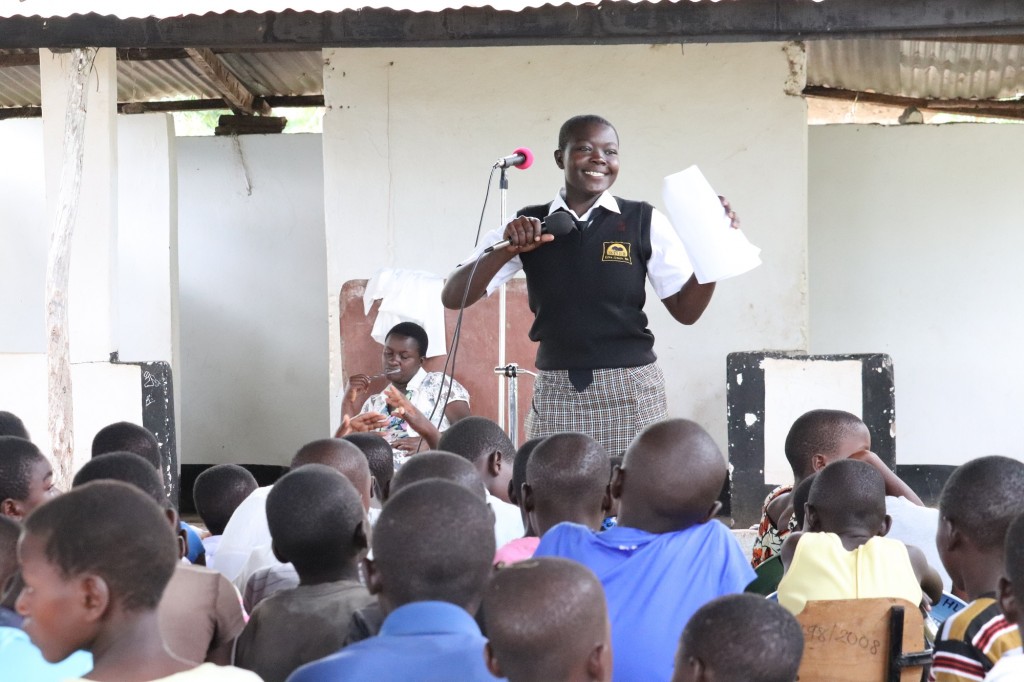 Since the WISER Girls Secondary School opened, 100 percent of the participating girls have graduated, 90 percent have enrolled in college or university, and none have dropped out due to early pregnancy. WISER is in the top 1 percent of schools in the region and graduates earn government scholarships at more than three times the national rate. In 2016, 56 percent of WISER graduates qualified for government scholarships, compared to 18 percent nationally.
Since the WISER Girls Secondary School opened, 100 percent of the participating girls have graduated, 90 percent have enrolled in college or university, and none have dropped out due to early pregnancy. WISER is in the top 1 percent of schools in the region and graduates earn government scholarships at more than three times the national rate. In 2016, 56 percent of WISER graduates qualified for government scholarships, compared to 18 percent nationally.
WISER has been recognized as a top-performing Girls’ School out of 360 schools in Migori County, based on Kenyan national exam scores, two years running (2015 and 2016 school years). It placed among the top three Girls’ Schools at the sub-county, county, and regional levels of the National Science and Engineering Fair in 2017. WISER is a member of the Girls CHARGE consortium via partnership with the Clinton Global Initiative, a member of GlobalGiving’s inaugural Girl Fund in 2017, and is included in GlobalGiving’s Top Nonprofits Committed to Impact in 2017.
Voices of the Girls
“It’s hard to guess what I’d be doing without WISER – I only know I’ve finished school without sickness, home worries, and pregnancy. I’m convinced WISER changed my life.”
- Sarah Oyula, WISER class of 2015
“I can’t explain in words how much WISER has impacted my life. It made me believe in myself. It gave me a caring family. It taught me to move through the world. WISER made that happen.”
- Mercy Adhiambo, WISER class of 2014
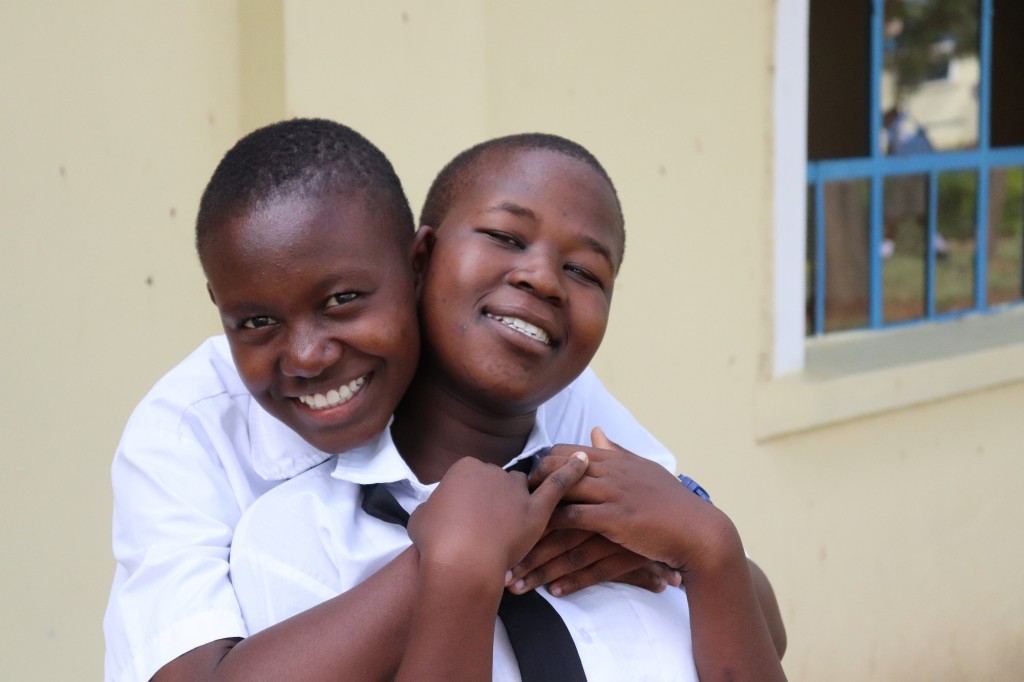 “When I came to WISER, I was finally recognized. The way that they are working – it’s quality. Teachers here have passion. I know I’m going to succeed, because with WISER, I feel ready.”
“When I came to WISER, I was finally recognized. The way that they are working – it’s quality. Teachers here have passion. I know I’m going to succeed, because with WISER, I feel ready.”
- Velma Auma, WISER class of 2019
“For many years, girls have been discriminated against. Sometimes they are given unequal opportunities. Sometimes their parents refuse to send them to school. So, it is up to us, the girls, to advocate for these rights… girls are talented! We have to show what we can do, and it’s important to have girls in leadership.”
- Linah Adhiambo, WISER class of 2018
“You know, for me, at home, we have issues of food. But at WISER, you eat a balanced diet. There is water, you can get water for drinking, even though in other places there is a shortage of water. The teachers are teaching very well, if you have a question they answer you with a lot of encouragement. These things make me know that I’ll make it and graduate.”
- Esther Akoth, WISER class of 2021
“WISER made me feel confident that I can use the sexual and reproductive health knowledge I have learned to make good choices in my life. Even when problems come into my life, I can manage them.”
- Anonymous Muhuru Bay Student
About the Organization
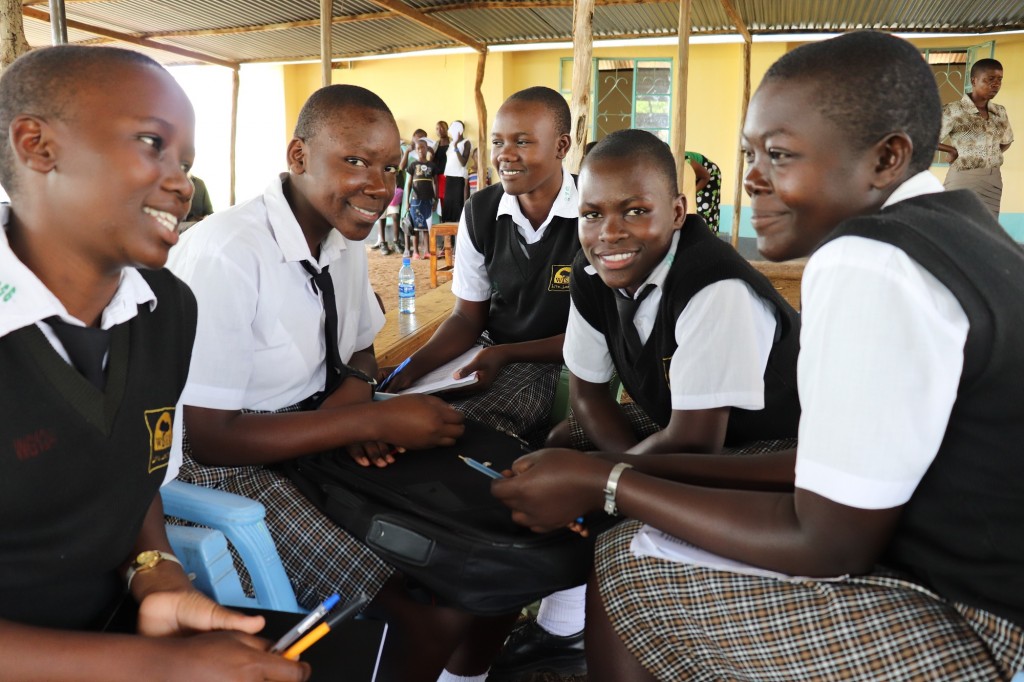 WISER was co-founded in Muhuru Bay, Kenya in 2007 by Dr. Rose Odhiambo of Egerton University in Njoro, Kenya and Dr. Sherryl Broverman of Duke University in Durham, NC. In 2008, WISER registered as an NGO in Kenya. In 2010, WISER International incorporated in the United States and in 2012 received independent 501(c)(3) status. WISER International and the WISER NGO in Kenya function as one organization with a shared mission of empowering girls.
WISER was co-founded in Muhuru Bay, Kenya in 2007 by Dr. Rose Odhiambo of Egerton University in Njoro, Kenya and Dr. Sherryl Broverman of Duke University in Durham, NC. In 2008, WISER registered as an NGO in Kenya. In 2010, WISER International incorporated in the United States and in 2012 received independent 501(c)(3) status. WISER International and the WISER NGO in Kenya function as one organization with a shared mission of empowering girls.
WISER’s core programs holistically target adolescent girls ages 14 – 18 from families with minimal formal education and extreme levels of poverty. More than 40 percent of WISER girls are orphans, the majority due to HIV/AIDS.
Where They Work
WISER works in the Muhuru Bay, Migori County, in Kenya. Kenya is located in Eastern Africa, bordering the Indian Ocean, between Somalia and Tanzania. The country’s size is five times the size of Ohio and slightly more than twice the size of Nevada. Kenya’s population is nearly 48,000,000. The population is heavily concentrated in the west along the shore of Lake Victoria. Other areas of high density include the capital of Nairobi, and in the southeast along the Indian Ocean coast.
More than 40 percent of Kenyans are under the age of 15 because of sustained high fertility, early marriage and childbearing, and an unmet need for family planning. The median age is 19.7 years. Kenya’s persistent rapid population growth strains the labor market, social services, arable land, and natural resources.
The mother’s mean age at first birth is 20.3 years, with a maternal mortality ratio of 510 deaths/100,000 live births, and an infant mortality rate of 37.1 deaths/1,000 live births. The HIV/AIDS adult prevalence rate is 4.8 percent (2017 est.), and the number of people living with HIV/AIDS in Kenya is 1.5 million.
The literacy rate for the total population is 78 percent. The labor force is primarily (61.1 percent) agriculture, with 6.7 percent in industry and 32.2 percent in services. Thirty-six percent of the population is below the poverty line.
The community around WISER has among the highest rates of HIV, typhoid, and malaria in Kenya, and most adults have an average income of less than two dollars a day.
A Closer Look at the Vulnerability of Isolated Girls and the Benefits of STEM Education
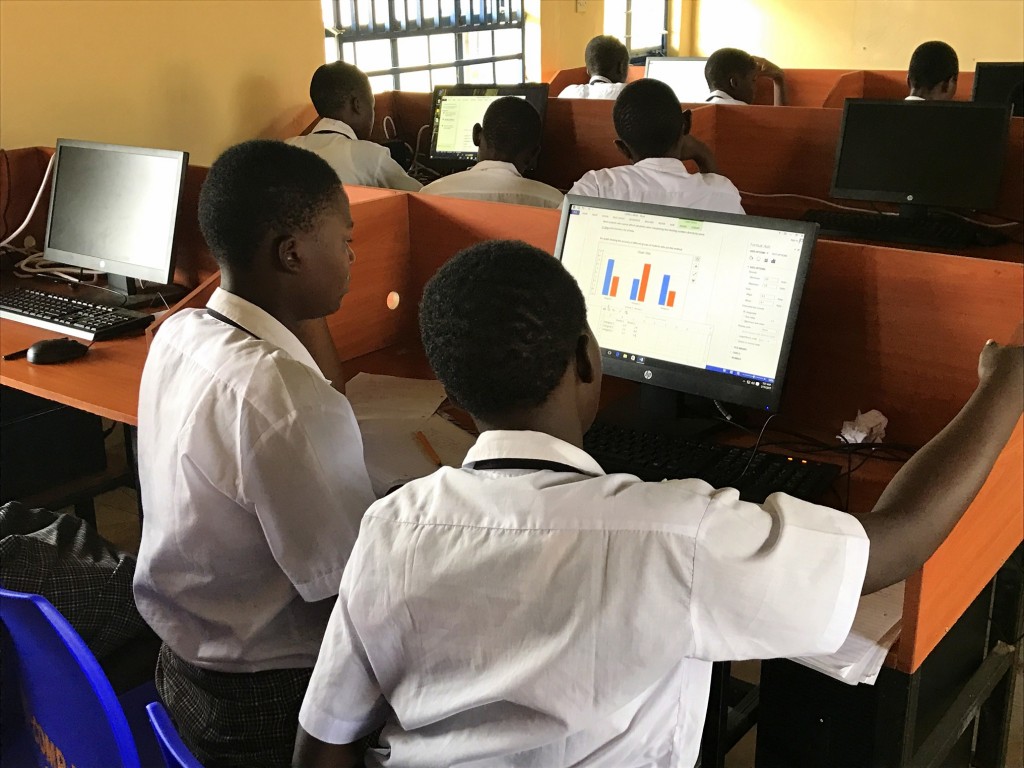 Investing in education and empowerment for girls drives economic growth individually and globally. Unfortunately, across many areas of the developing world, children live in a situation of vulnerability and are exposed to a combination of systematic discrimination based on age and social status. Girls face double disadvantages because of gender discrimination at the household and community level. These vulnerabilities are even stronger in isolated rural areas, where poverty, traditions, and lack of infrastructure and services prevail. In these areas, girls bear the brunt of the burden of poverty, disease, and gender violence.
Investing in education and empowerment for girls drives economic growth individually and globally. Unfortunately, across many areas of the developing world, children live in a situation of vulnerability and are exposed to a combination of systematic discrimination based on age and social status. Girls face double disadvantages because of gender discrimination at the household and community level. These vulnerabilities are even stronger in isolated rural areas, where poverty, traditions, and lack of infrastructure and services prevail. In these areas, girls bear the brunt of the burden of poverty, disease, and gender violence.
For every additional year of secondary school, a girl gains an 18 percent increase in future earning power. The World Bank calculates that keeping girls in school and ending child marriage could add $4 trillion to the global economy. And, for each additional year a girl in East Africa stays in secondary school, she reduces her lifetime risk of contracting HIV by 12 percent.
However, even women who are able to get an education earn less income and work in lower paying occupations and sectors than men do. As countries move forward with closing gender differences and enabling education, other gaps remain. Women’s participation in science, technology, engineering, and mathematics (STEM), is one of these areas. Technology disruption could be a key growth driver for economies over the coming years. But for women, advances in technology also pose a threat, as many of their jobs could be displaced and they do not have the skills to replace them.
STEM education builds competencies such as critical thinking, creativity, problem solving, and collaboration. The future world labor market will require that employees work together to address global challenges using science, technology, engineering, and mathematics. A focus on STEM education is crucial for women’s empowerment. The fact that women are not entering these fields of study or working in these sectors and occupations means that talent is being misused and that economies are less productive than they could be.
Source Materials

